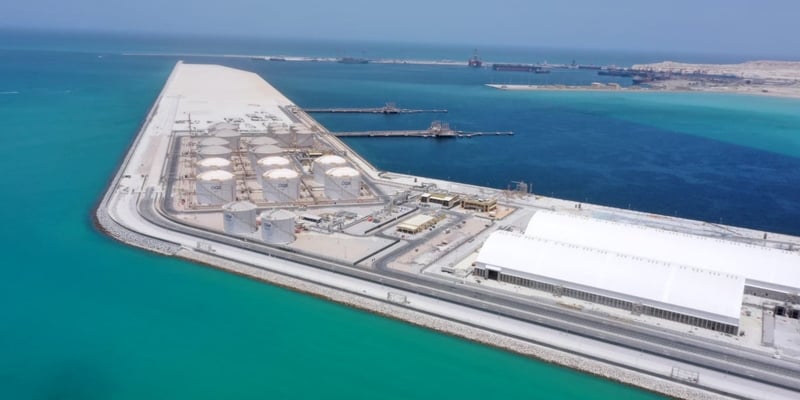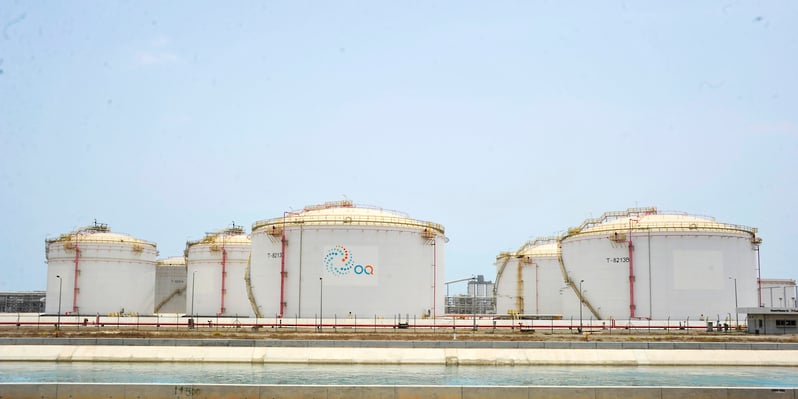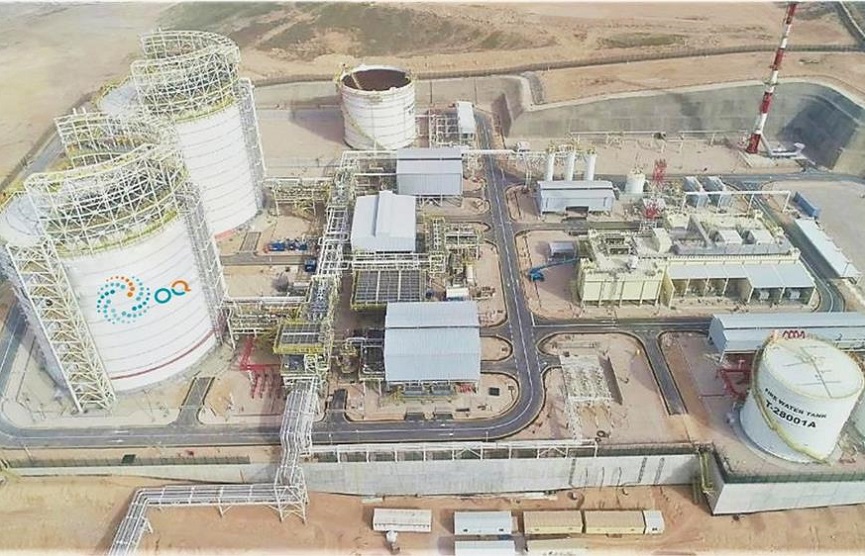The Sultanate of Oman has started the trial operation of the crude oil distillation unit at the Duqm Refinery, in preparation for the operation of all units of the refinery, which will increase the oil refining capacity by about 230,000 barrels before the end of this year.
The design of the refinery depends on the hydrocracking unit and the petroleum coke unit, and when it is operational, it will produce liquefied oil gas, naphtha, jet fuel, diesel and sulfur, in addition to petroleum coke.
The Duqm Refinery is a joint venture between the Omani government energy company OQ and Kuwait Petroleum International, at a cost of $8 billion, and is being built on an area of 900 hectares, in the Duqm Economic Zone.
Duqm refinery commercial operation date
Hilal bin Ali Al-Kharousi, CEO of the Commercial, Refineries and Petrochemicals Sector of OQ Group, Chairman of the Refinery Board, confirmed the operation of all supporting units in the project, in which the completion rate reached 97.5%.
He explained that the trial operation of the Duqm refinery goes through several stages before reaching the maximum capacity, and then the commercial operation, which is expected to be at the end of this year.
Duqm Refinery’s vision is to become a world-class refinery, boosting economic growth and oil refining capabilities in the Sultanate of Oman to exceed 500,000 barrels per day.
Al-Kharousi said that the company has been implementing a number of exercises aimed at evaluating the efficiency of the integrated emergency response plan and the system for dealing with emergency situations, in addition to evaluating firefighting and rescue activities, containing hazardous materials, and security procedures.

Oil storage in the Sultanate of Oman
Al-Kharusi indicated that the trial operation of the Duqm refinery is in line with the progress made in the Ras Markaz crude oil storage project, one of the OQ projects, of which the first phase of the basic construction work has been completed, and it has successfully received two ships of crude oil.
The trial run also coincides with the completion of the power and water plant, which will supply the Duqm Refinery, the petrochemical industries and the Oman Tankers Company with energy and water, by producing 326 megawatts of electricity and 36,000 cubic meters of industrial water per day.
The refinery includes 10 main refining units, capable of producing diesel, jet fuel, naphtha, liquefied petroleum gas, sulfur and petroleum coke, which will help provide high-quality oil products to consumers all over the world.
The refinery includes 3 main packages, the first is related to the main processing units, the second is related to services and facilities supporting operational operations, while the third includes storage facilities and export of liquid and bulk petroleum materials from the port of Duqm, oil storage facilities in Ras Markaz, and an 80-kilometer pipeline for transporting crude oil extending from Center head to strainer.

Oil refining in the Sultanate of Oman
On the other hand, the total oil refinery products in the Sultanate of Oman increased by 44% until the end of February 2023, compared to the same period in 2022.
Initial statistics issued by the National Center for Statistics and Information showed that the total production of regular car fuel (gasoline 91) increased by 82.8% at the end of February; To reach two million and 848 thousand and 800 barrels, compared to the same period last year, which amounted to one million and 558 thousand and 200 barrels.
Automotive fuel sales increased by 22.4%, to reach 2,233,400 barrels, compared to 1,824,000 barrels during the same period last year, in addition to an increase in its exports by 100%, to record 584,400 barrels.
The statistics, seen by the specialized energy platform, indicated that the production of premium fuel (gasoline 95) increased by 3.4% by last February, to reach 1,777,800 barrels, compared to 1,718,800 barrels in the same period last year.
On the other hand, sales of 95-octane gasoline decreased by 0.3%, recording 1,857,600 barrels, compared to 1,863,500 barrels. Its exports decreased by 92.4%, reaching 35,000 barrels.

Production of diesel and jet fuel
Statistics showed that diesel production in February increased by 38.3%, recording 5 million 525 thousand and 400 barrels, compared to 3 million 994 thousand and 500 barrels, and its sales also increased by 11%, recording 2 million 273 thousand and 100 barrels, compared to 2 million 47 One thousand and 500 barrels, and its exports increased by 60.2%, to record 3,8,500,000 barrels.
The sales, production and exports of jet fuel by the end of February 2023 increased by 65.4%, 61.6% and 51.8%, respectively, compared to the same period last year.
The statistics showed that the production of liquefied petroleum gas increased by 62.9%. To record one million and 285 thousand and 700 barrels, compared to 789 thousand and 100 barrels in the same period last year, and its sales also increased by 37.2%, to reach one million and 435 thousand and 700 barrels, compared to the same period last year, which amounted to about one million and 46 thousand and 600 barrels, in When its exports amounted to 96 thousand and 100 barrels.
In the petrochemical sector, the production and exports of benzene increased by 176.6% and 291.7%, respectively, and the production and exports of paraxylene increased by 356% and 316.9%, respectively, until the end of February 2023, and the production and exports of polypropylene increased by 80.4%. % and 110.4%, respectively, while its sales decreased by 12.7%.
related topics..
Also read..

Leave a Reply